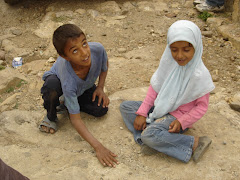In the interest of full disclosure, I never read Gelb's "Power Rules: How Common Sense Can Rescue American Foreign Policy". From the reviews/excerpts such as this one in the NY Review of Books, it's the standard dose of ahistorical American Exceptionalism pumped up with some pro-intervention 'cooperative security' niceties. The proposals reflect the fact that Gelb once had access to official military and intelligence information (the sort that imbues its readers with the false sense of supremacy that has led so many policy-makers to intervene in conflicts they think can be easily won - roughly the idea that all the world's problems not only resemble nails but that we have stockpiles of such technologically advanced hammers that we cannot possibly fail).
The author picks out some good phrases, such as:
"Gelb thinks that Obama is situated to deliver an impressive display of war that adds heft to diplomacy, and of diplomacy that reconciles us to war. The reason Obama can do this is that "to Arabs and Iranians, America is still number one."
One assumes of course, that Gelb wrote this when the wars (both in Afghanistan and Iraq) were both going well - although I can never remember a time when conditions in both were concurrently improving. Although the Iraq War (by most accounts) seems to be improving, the situation in Afghanistan certainly has not. If anything, Obama is in a position to deliver the rather hopeless message that most observers already understand, mainly that US diplomacy has suffered significantly b/c its war-fighting ability has been proven ineffective in Iraq and Afghanistan. Thus there's nothing with which to back-up that diplomacy.
Not to mention Gelb's rather baseless observation that "to Arabs and Iranians, America is still number one." We may indeed still act as if we're number one, which will fool most of the people most of the time, but other players are stepping into the small vacuums that are popping up throughout the globe (most notably the efforts of countries like Qatar (in Lebanon), Syria (between Turkey and Armenia) and others in presenting themselves as alternatives to US-allied peace brokers Egypt and Saudi Arabia).
Gelb's book is Ikenberry-esque in that he too cautions against the US tendency for isolationism (esp. after periods of such spectacular foreign policy failures). But the review follows up its examination of the book with some excerpts from Gelb's previous rhetoric on US foreign policy, which make his claims to 'common sense' incredibly suspect:
"In a discussion moderated by Senator Daniel P. Moynihan some twenty-five years ago, Leslie Gelb said with a genial irony that covert wars brought no real impairment of democracy: "The fact of the matter is that almost any covert operation that might be considered controversial is going to be debated publicly." This was said when the US was supplying arms to the contra rebels in Nicaragua, and mining the harbors of that country; the facts had lately come to public view, but the facts were not discussed until discovered by accident. The same held true with the American policy on torture under Bush and Cheney, which spread from Guantánamo to prisons in Afghanistan and Iraq.
Gelb, in 1984, was challenged by Morton Halperin:
The critical moment for debating a military intervention is before it begins. Clearly, once you help people start a war there are weighty arguments in favor of continuing to support them.
Senator Moynihan also disagreed with Gelb:
I suggest that in the United States we openly discuss a very limited number of such operations, that the far greater portion are not discussed, but are hermetically sealed.
Moynihan plainly thought this a bad thing for constitutional democracy.
Gelb had the last word, in a way; but it was a puzzling last word: "I disagree," he said, with
the proposition that we ought not to interfere in the internal politics of other societies. I believe that is exactly what foreign policy is. All foreign policy is the extension of one's internal policies into the internal politics of another nation.
The subject was, to repeat, the arming of the contras in Nicaragua, but it was also the Mujahideen in Afghanistan. The comment sheds considerable light as well on Gelb's eagerness to continue pressure in the Middle East in the form of military and covert operations."
Subscribe to:
Post Comments (Atom)

No comments:
Post a Comment